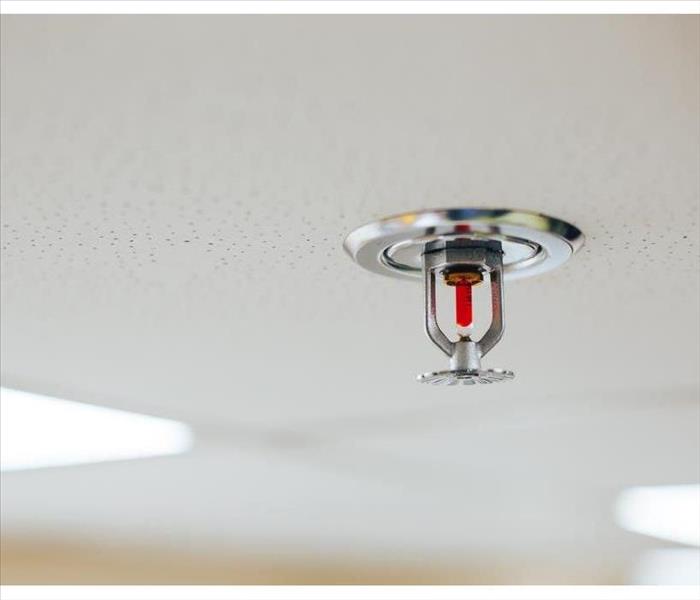Sprinkler Systems – Benefits and Drawbacks
1/11/2022 (Permalink)
 The periodic maintenance of the sprinklers is essential to avoid the damage that their poor condition can cause, at SERVPRO we can help you.
The periodic maintenance of the sprinklers is essential to avoid the damage that their poor condition can cause, at SERVPRO we can help you.
Benefits And Drawbacks Of Sprinkler Systems
Overhead water sprinklers are one of the oldest and most common methods of protecting a business from fire. While they can keep flames under control, they also have a few unfortunate side effects in the form of water damage. From standing water to mildew, water sprinklers can cause or trigger some unpleasant side effects. Learn the top ways that sprinklers can necessitate water cleanup in your Kings Point, FL, business and what you can do.
Because they can tamp down fires before they get out of control, fire sprinkler systems are required in many cities to meet commercial and retail building codes. Despite their benefits, sprinkler systems aren’t without major after effects:
- Overspraying damage
- Standing water
- Mildew
Overspraying
Sprinklers are sensor operated, but they don’t automatically turn back off when the fire is gone. That can lead to water damage from overspraying. Water gets logged in porous surfaces such as carpeting, drapes and other upholstery, setting the stage for a costly mildew problem and water cleanup expenses – on top of the standard smoke cleanup and other fire cleanup expenses.
Leaks
Even before a fire suppression system is activated, it can cause troubles. Because these systems are mechanical in nature, they’re prone to failures like leaks. A minor leak in a system in an apartment building can result in the release of thousands of gallons of high pressure water, damaging units across several floors.
Pooling Water
While a huge leak can cause problems detailed above, even a minor drip from a few sprinkler heads can result in damage. Pooling water can begin to form beneath the head, again setting the wheels in motion for mildew and mold.
Water damage is a surprising but very real effect of a fire. Monitor sprinkler systems monthly to mitigate some of the risk, and if you’re already a victim, connect with a time-proven water cleanup company to get back to normal fast.



 24/7 Emergency Service
24/7 Emergency Service